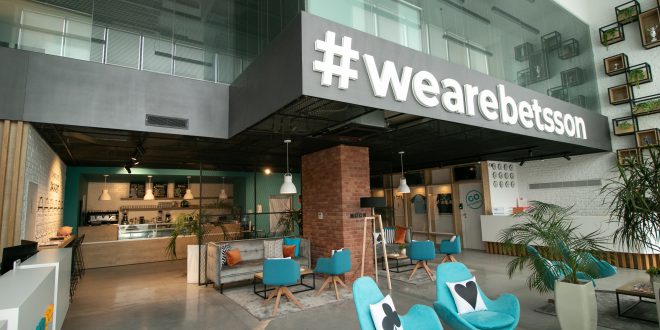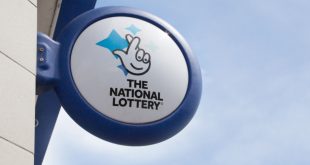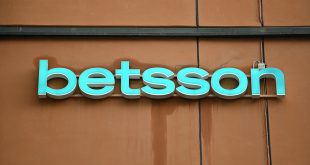Betsson AB experienced a broadly successful third quarter of the year, with revenue growth throughout most geographic segments across both betting and casino verticals, albeit with the exception of the Nordics.
Group-wide revenue rose 19% to €238m (Q3 2022: €200m) and EBITDA by 42% to €69m (€49m) with an accompanying margin of 29% (24%). This performance drove gross profit of €157m, a 17% increase on corresponding 2022 profit of €134m.
“Highest ever revenue”
Product-wise, sportsbook revenue rose 2.4% from €62m to €63m, although the margin fell slightly from 8.3% to 7.3%, and the importance of the casino vertical was made evident by the fact that betting represented 27% of group-wide revenue, down from 31% the year prior.
Additionally, Betsson’s results also showcase the ever-increasing digital nature of betting and gaming in 2023, with revenue from mobile devices representing 79% of the Stockholm operator’s sportsbook income at €49m, up from 79% and €47m last year.
Further demonstrating its importance to Betsson’s growth, the casino segment reported its ‘highest revenue ever’ in Q3 at €172m, an increase of 27% on €135m the year prior and representing 72% (68%) of group revenue. Again, mobile revenue accounted for the bulk of this at €145m (€109m), representing 84% (81%) of casino revenue. 
“Betsson’s third quarter 2023 featured continued high customer activity, strong financial development and further investments in product and new markets,” said Pontus Lindwall, Group CEO.
Lindwall further observed that Betsson’s revenue and its EBIT – which rose 46% from €38m to €56m, and included the €120m takeover of BetFirst in June – represented “the highest ever for Betsson in a single quarter and mark the seventh quarter in a row with sequential growth”.
The global roadmap
Geographically, Betsson has maintained momentum across a diverse range of markets, but the Nordics are still proving a struggle for the company with revenue from the group’s founding region having grown just 0.9% to €52m last quarter.
In Q3, these difficulties continued as revenue dropped 14% from €53m to €46m. Betsson attributed Swedish struggles to ‘decreased marketing activities’ leading to lower customer activity, whilst casino was the main issue in Finland.
In contrast, however, the group cited Denmark as being more favourable in terms of both sportsbook and casino, with the firm launching its flagship Betsson sportsbook brand in the country earlier this year via a rebrand of the Casino.dk platform.
Also experiencing a decline, although much less significantly, was the rest of world region, which saw revenue fall 6.5% to €3.8m (€3.6m), driven by lower sportsbook margin in Nigeria and decreased activity in Canada.
Troubles in the Nordics and RoW were offset substantially by growth in Western Europe, Central & Eastern Europe and Central Asia (CEECA) and Latin America, however, with double-digit upticks recorded across all three.
Western European revenue rose 57% from €25m to €29m, CEECA was up 23% from €79m to €97m and Latin American income rose 33% from €39m to €51m, with Argentina and Colombia highlighted as standouts in the latter although Peruvian performance did drop.
In Western Europe, the BetFirst takeover secured Betsson a strong foothold in Belgium and the group is confident of continued growth driven by casino in Italy, but like other operators Germany is proving to be a slight thorn in its side. Meanwhile in the CEECA area, positive performances were highlighted in Georgia, Croatia, Greece, Latvia and Estonia.
“Revenue for the group growth was broad-based with high growth in all major regions except for the Nordics,” Lindwall explained.
“The geographical expansion continues and several new milestones were passed during the quarter; betFIRST in Belgium was included in the Betsson Group, a launch took place on the locally regulated market in Serbia and a local licence for sports betting was obtained in France, where go-live is expected in the fourth quarter.
“France is an important gaming market in Europe with large long-term potential for online gaming and we now take a first step to be able to offer French players a first-class experience in sports betting. At the end of the summer, the brand Betsson was also introduced in Denmark, which strengthens the Group’s position on the Danish market.”
Strategic direction – a B2B outlook
Lastly, Q3 also saw Betsson up its marketing efforts with the launch of a new campaign, ‘a bet makes the difference’, with the group seeking to establish its flagship brand as its ‘global main brand, aiming to achieve economies of scale and competitive advantages for the business in the long run’, as outlined by Lindwall.
Despite this campaign, the group was able to reduce marketing expenses from €34m to €27m, although other expenses did increase with operating costs hitting €100m (€95m) and personal expenses rising from €31m to €35m.
Looking ahead, Betsson continues to place B2B operations as a focal point of its strategic direction and approach to growth, eyeing up development of this area of its business alongside entering new markets and expanding in existing ones as core objectives.
“I look forward with confidence to the final sprint of the year,” Lindwall concluded. “Geographical diversification, a solid balance sheet and strong cash flows create good conditions for continued investments in profitable growth to deliver long-term value creation for our shareholders.”









